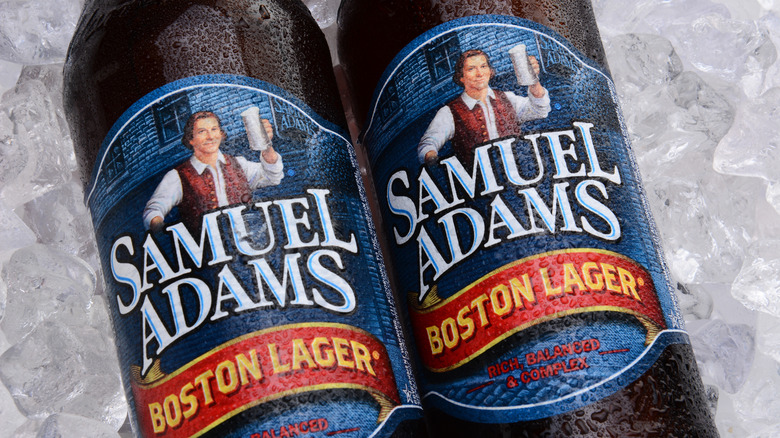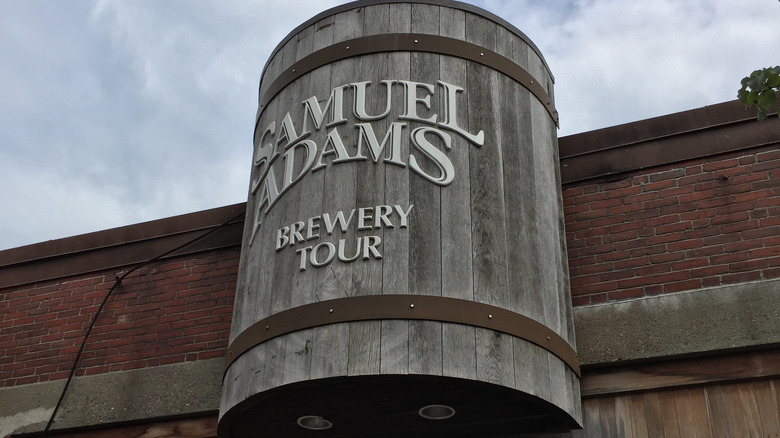Did Sam Adams Actually Brew Beer?
For just under 40 years, according to the Boston Beer Company's website, Americans have been enjoying one of the few mass-produced beers that bears the first and last name of an actual person (Miller, Coors, and Busch were all real people too, but no one is cracking open an Augustus Busch or an Adolph Coors). Samuel Adams bears the name and image of a real person, a name you may not recognize unless you recently took a U.S. History class.
The real Samuel Adams was a businessman and, later, politician who was instrumental in some of the events that led up to the American Revolution. Among other roles, Adams was, as All Things Liberty notes, a contributor to newspapers that published anti-British content, and was one of the vandals in the Boston Tea Party. 250 years later, however, Adams' name is attached to a brand of craft beer and not to a newspaper or academic appointment. That's rather surprising, since Adams' connection to the beer industry is one of dismal failure.
Samuel Adams' own beer business failed
Samuel Adams inherited his father's malthouse, a business that produces malt (an essential part of the beer-brewing process) from grains and then sells it to brewers, as Pressbooks notes. According to History, we even have some of Adams' advertising copy. "Strong beer, or malt for those who incline to brew it themselves; to be sold by Samuel Adams, at a very reasonable rate," reads a 1751 advertisement. Unfortunately, Adams drove his family's malting business into the ground, likely due in part to the fact, as historian Lauren Clark suggests, that he preferred fomenting revolution to producing malt.
Of course, malting and brewing are two different things (or more accurately, the former is a precursor to the latter). So did Adams actually brew beer? Probably not, according to Mental Floss. As evidence, the website points to the fact that Adams' enemies jokingly called him a "maltster" rather than a "brewer."
Adams was also an advocate for "Buy American" centuries before the phrase would come into vogue. In one speech, he entreated American brewers to step up their game and make better products so the colonists would purchase American beer, rather than having to pay the high price for (and taxes on) imported British beer.

